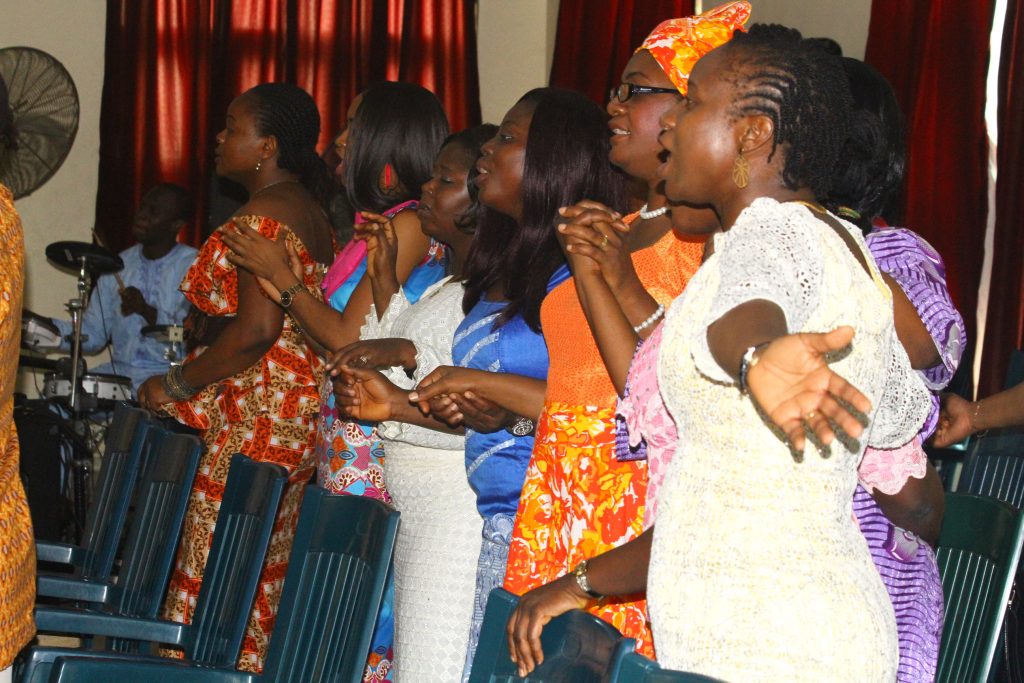
Sunday February 22 2015
Key Passages: 2 Timothy 4: 6-8
“For I am already being poured out as a drink offering, and the time of my departure is at hand. 7 I have fought the good fight, I have finished the race, I have kept the faith. 8 Finally, there is laid up for me the crown of righteousness, which the Lord, the righteous Judge, will give to me on that Day, and not to me only but also to all who have loved His appearing.”
I often ask people how they would want their lives to be described in retrospect: Matthew’s account of the seed that fell on good soil: “But others fell on good ground and yielded a crop: some a hundredfold, some sixty, some thirty,” (Matthew 13:8); or Mark’s account, “But other seed fell on good ground and yielded a crop that sprang up, increased and produced: some thirtyfold, some sixty, and some a hundred.” (Mark 4:8). Nearly always, everyone prefers Mark’s order because it speaks of successive increase. “But the path of the just is as the shining light, that shineth more and more unto the perfect day.” (Proverbs 4:18 KJV).
We all know that it’s not how you start in life that’s important but how you finish. The Bible is replete with people who started well but didn’t finish well. Beginning from Adam and Eve, Noah, Samson, Solomon and several kings of Israel, we read about people who started well but ended up poorly. In the New Testament we read about men like Judas and Demas. Contemporary history is also filled with people who did not finish well. Sadly, many of them were Christians and even ministers. What is it that would make people to start well and end poorly?
BUILDING A HOUSE
When Jesus was speaking about the cost of discipleship, He illustrated it with the parable of a man building a house. “For which of you, intending to build a tower, does not sit down first and count the cost, whether he has enough to finish it – 29 lest, after he has laid the foundation, and is not able to finish, all who see it begin to mock him” (Luke 14:28-29). Here was the case of a person who started but couldn’t finish. The consequence of not finishing well is that it attracted mockery.
The most important feature of any building is the foundation. It sets the limit to the height, the weight it can carry and the durability. If there is compromise in the foundation, it will show in the course of time. Most of the building collapse that have happened in Lagos in recent times have been attributed to faulty foundation. When a poor foundation is laid it results in disaster at the end.
CORE VALUES – FOUNDATION FOR FINISHING STRONG IN MARRIAGE
There are core values that should form the foundation of any marriage. Where they are present they will guarantee a stable home and ultimately help couples to finish well. These core values are: love, loyalty, commitment and fear of God.
LOVE
Many times, when couples are having conflicts, I am tempted to ask, “How did you start?” Many people get married for the wrong reasons. If the reason is only money, looks, or position then what happens when they are no longer there? If you fell in love with a person’s looks what happens when age begins to show; if it’s because of money what happens when downturn comes in finances? The external things may fade away but the inner person remains the same. If you married because of the quality of the inner man then no matter what happens your love will remain strong.
Jacob’s love for Rachel is a good example for us. Theirs was love at first sight (Genesis 29:1-12). He served Laban to marry her and it was said: “So Jacob served seven years for Rachel, and they seemed only a few days to him because of the love he had for her.”(Genesis 29:20). Through years of waiting for Rachel to have a baby, Jacob still loved her. That love endured till the end and extended to Rachel’s children. Couples should have enduring love for each other. Jesus is our example, “… having loved His own who were in the world, He loved them to the end.” (John 13:1).
LOYALTY
Another core value is loyalty. To be loyal is to be there for each other, to defend each other, to be transparent in dealing with each other and to protect each other’s interests. When we speak of loyalty we think of David and Jonathan (1 Samuel 18:1-4). When Jonathan stood before his father Saul, he was willing to defend David even at the risk of losing his own life (1 Samuel 23:16; 20:25-32). David remained loyal to Jonathan even after his death. He kept the promise he had made to his friend Jonathan by bringing Mephibosheth to the palace (2 Samuel 9). Joseph showed loyalty to Mary when he did not want to put her to public disgrace: “Joseph, her fiancé, was a good man and did not want to disgrace her publicly, so he decided to break the engagement quietly” (Matthew 1:19 NLT). He knew that to disgrace your wife is to disgrace yourself.
COMMITMENT
Commitment is captured in that aspect of the marriage vow where the couple says to each other “for richer, for poorer; in sickness and in health; for better for worse; till death do us part.” In recent times there has arisen a teaching that uses a different version like “For richer for richest…” Now, the misunderstanding is that it is a confession. Rather, it is a commitment. No better example of commitment in the Bible than Ruth and Naomi. When Ruth was being persuaded to abandon her mother-in-law, this was her word: “But Ruth said: “Entreat me not to leave you, Or to turn back from following after you; For wherever you go, I will go; And wherever you lodge, I will lodge; Your people shall be my people, And your God, my God. 17 Where you die, I will die, And there will I be buried. The Lord do so to me, and more also, If anything but death parts you and me.” (Ruth 1:16-17). Commitment says, “No matter what comes our way, we shall stick with each other.
I read about a college president in the US who resigned his position in order to take care of his wife who was suffering from Alzheimer. He had the option of sending her to a hospice but chose to care for her even when she could no longer recognise him. It shocked the College Board that a man should take such a decision. Tough times reveal couples’ commitment to each other. A man told us how when he fell into bad times and lost his job, his wife began to disrespect him and did not support him. Eventually, seasons changed. He got a good job and God began to bless him again. Did he take out a revenge on the wife? Not at all. Rather, through his love for her he showed her what true commitment is.
FEAR OF GOD
God must be at the centre of your family, marriage or business. Early in marriage my wife and I made that decision and it has been our mainstay. When everything else fails, just the fact that God is watching over us and that we shall give account to Him on how we treat each other is a deterrent.
Any marriage that lacks these core values will not be stable and would not finish strong. That marriage will be like the man who started to build but couldn’t finish.
RUNNING A RACE – KEEPING YOUR EYE ON THE BIG PICTURE
The Christian life isn’t a sprint; it’s a marathon! The way a sprinter prepares is different from the way a marathoner prepares. One prepares for maybe a hundred or two hundred meters dash, while the other prepares for the long haul. It requires a lot of discipline and perseverance to survive the marathon.
Paul saw the Christian life as a race. “Do you not know that those who run in a race all run, but one receives the prize? Run in such a way that you may obtain it. 25 And everyone who competes for the prize is temperate in all things. Now they do it to obtain a perishable crown, but we for an imperishable crown. 26 Therefore I run thus: not with uncertainty. Thus I fight: not as one who beats the air. 27 But I discipline my body and bring it into subjection, lest, when I have preached to others, I myself should become disqualified.” (1 Corinthians 9:24-27)
The desire and joy of every athlete is not just to compete but to win the prize. Unfortunately, in the race of life many people start but never make it to the finish line. Probably, over two million people left Egypt but only two of them, Joshua and Caleb, finished strong. We must set our eyes on the big picture – to win the prize.
THE CASE OF TWO SAULS
The tribe of Benjamin produced two notable characters, one in the Old Testament, the other in the New. They both had the same name, had dramatic encounter with God at one point in their lives, but unfortunately they ended differently. Their life story is a great lesson for us.
SAUL THE FIRST KING OF ISRAEL
We first meet an ordinary Israelite helping the father to look for some lost donkeys. He ended up at Shiloh where Prophet Samuel told him that the donkeys had been found and that he would be the king of Israel. Saul was so self-effacing that on the day of his coronation he was hiding away and they needed to enquire from the Lord to find him. (1 Samuel 10:22). Samuel would later describe Saul’s life at this time thus: “Samuel said, “Is it not true that when you were insignificant in your own eyes, you became head of the tribes of Israel? The LORD chose you as king over Israel.” (1 Samuel 15:17).
Not everyone was favourably disposed to his kingship but Saul didn’t think it was a big deal (1Samuel 10:26). He was tolerant; he could accommodate dissent. When the people of Jabesh-Gilead were threatened, we saw a compassionate Saul come to their rescue (1 Samuel 11). It really looked like Saul was going to make a great king! However, not long after, the fault lines began to show in his character. First, in the rash decisions he made. He placed soldiers on the frontlines on a fast and even was ready to kill his son Jonathan for a mere taste of honey; he began to overstep his boundaries when he couldn’t wait for Samuel and offered sacrifice that he wasn’t authorised to; he was partial in his obedience to the commands of God. When an occasion demanded that he sought the counsel of God, he was too impatient that he stopped midway (1Samuel 14:15-19). Eventually, this man that started as a humble man was so concerned about his reputation (he didn’t care about his character!) that even in the midst of disobedience he still wanted to look good in the eyes of the people. He wanted Samuel to honour him before the people. (1 Samuel 15:30). Meanwhile, he had erected a monument for himself. (1 Samuel 15:30). This man, who began humbly had become so full of himself. You never know what’s in a man until you test him with power!
Samuel had observed Saul’s streak of foolishness and warned him, but he wouldn’t take heed (1Samuel 13:13). Eventually, Saul was so driven by envy because of David’s rising popularity that he sought to eliminate him. Twice David saved his life. On the last occasion Saul said this about himself, which actually ought to be the epitaph on his tombstone: Then Saul said, “I have sinned. Return, my son David. For I will harm you no more, because my life was precious in your eyes this day. Indeed I have played the fool and erred exceedingly.” (1 Samuel 26:21)
SAUL OF TARSUS
On the other hand, Saul, who later became Paul, didn’t start out well. The first time we meet him, he’s leading the mob who stoned Stephen. His passion was to destroy Christianity. While he was on the way to Damascus he encountered the risen Lord and was dramatically saved. He would later say of himself: “Although I was formerly a blasphemer, a persecutor, and an insolent man; but I obtained mercy because I did it ignorantly in unbelief. 14 And the grace of our Lord was exceedingly abundant, with faith and love which are in Christ Jesus. 15 This is a faithful saying and worthy of all acceptance, that Christ Jesus came into the world to save sinners, of whom I am chief.” (1 Timothy 1:13-15).
He realised his calling and pursued it with passion. Despite all he faced in the course of serving the Lord he persevered. He would sum his drive thus: But none of these things move me; nor do I count my life dear to myself, so that I may finish my race with joy, and the ministry which I received from the Lord Jesus, to testify to the gospel of the grace of God.” (Acts 20:24). He had his eyes on the big picture which was to finish his race with joy or to finish strong. As his life was nearing the end, Paul would look back on his life’s journey and say: “For I am already being poured out as a drink offering, and the time of my departure is at hand. 7 I have fought the good fight, I have finished the race, I have kept the faith.” (2 Timothy 4:6-7).
How different from Saul the son of Kish. One started out well and ended poorly, the other started out poorly and ended well. Again, it’s not how a person starts that’s important. It is how they end.
Finishing strong means to die empty (as Myles Munroe would say); it means to have been all that God purposed for you to be in this life; it means accomplishing the vision God has given you; it means leaving a good legacy that will outlive you; It means that when this life is over you will receive a well done from the Lord.









